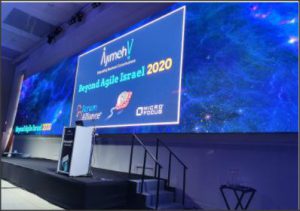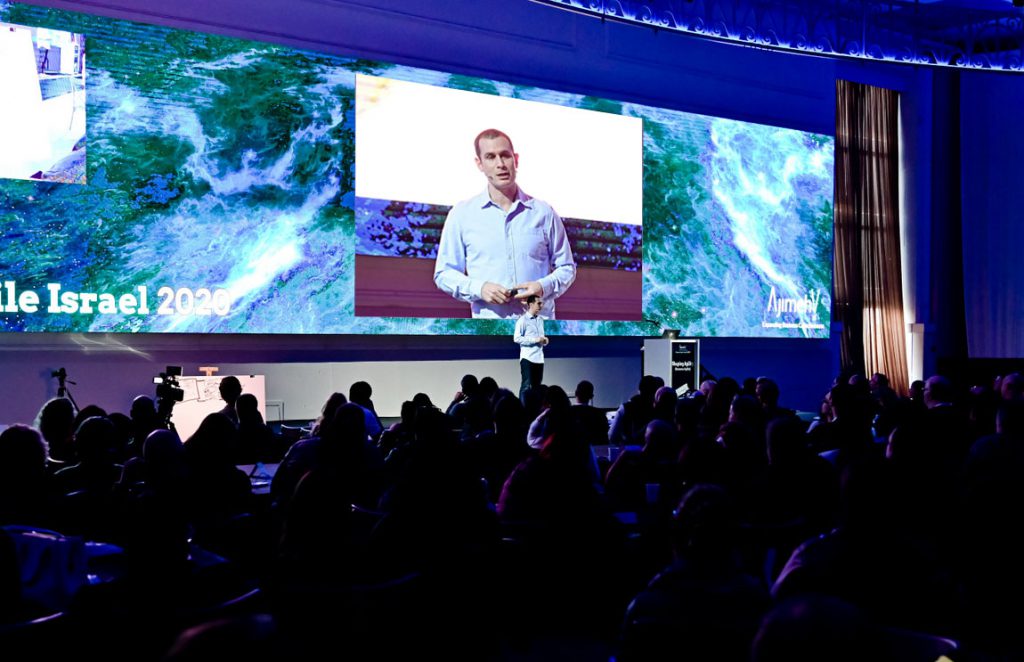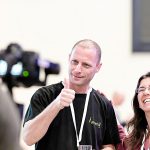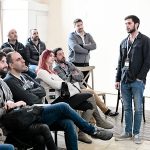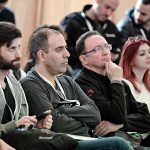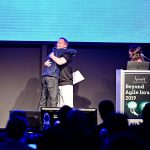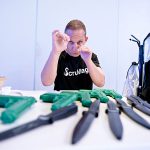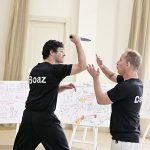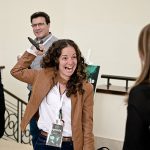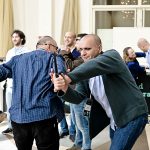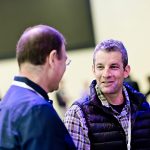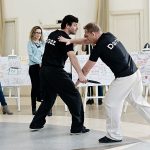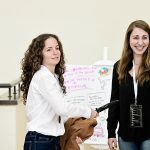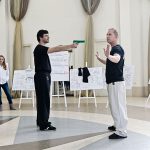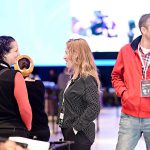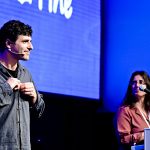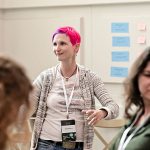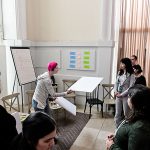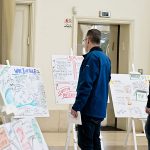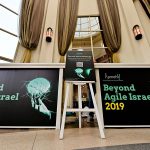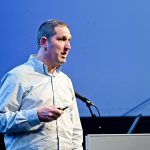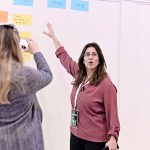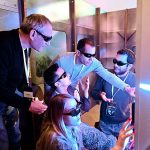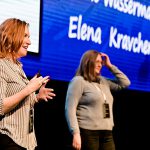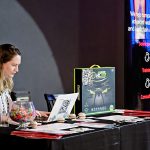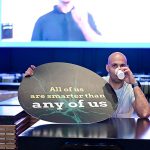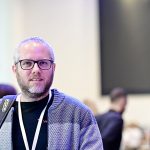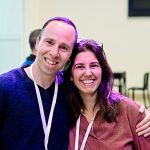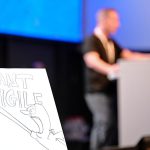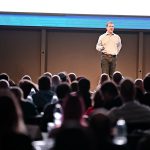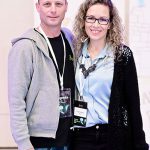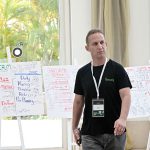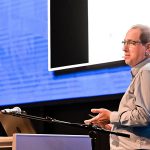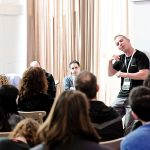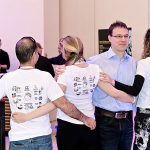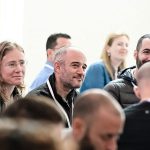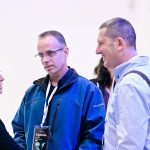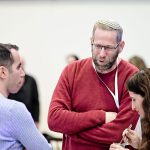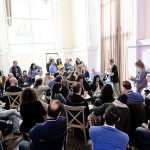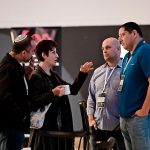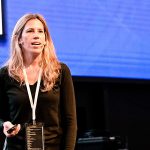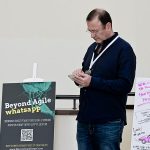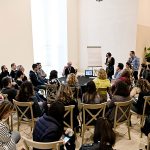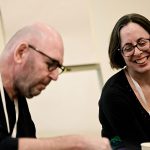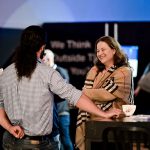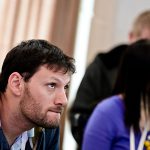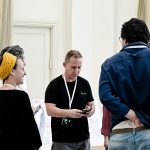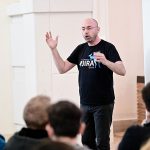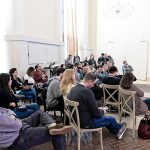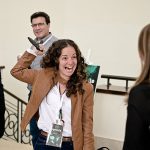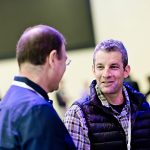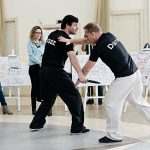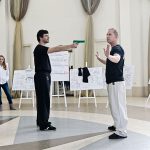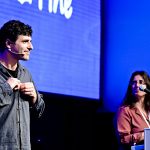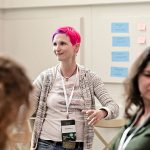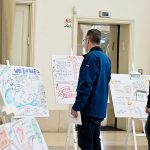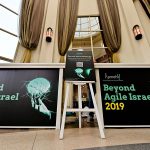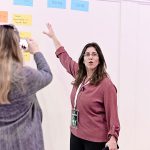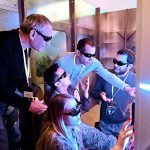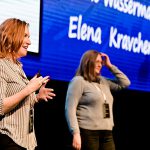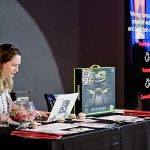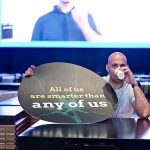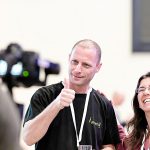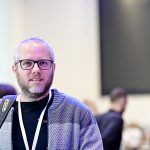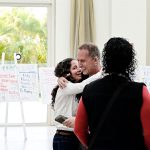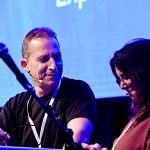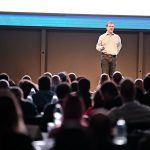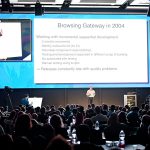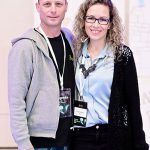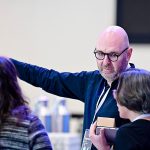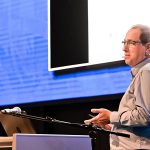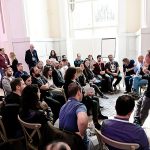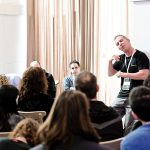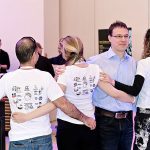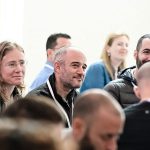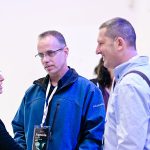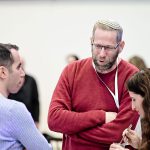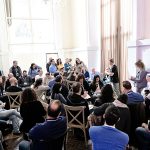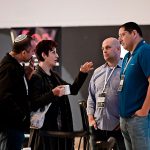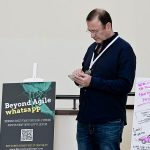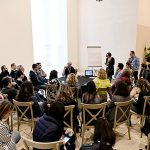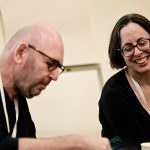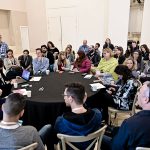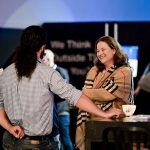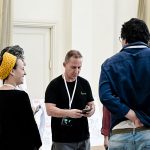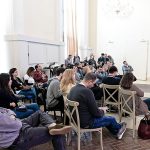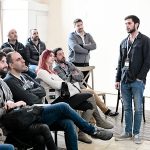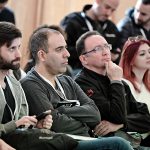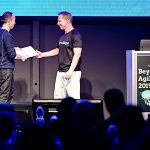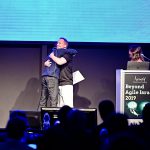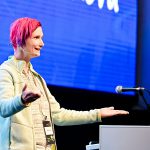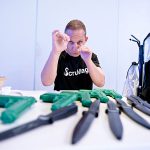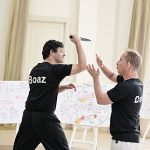Beyond Agile Israel 2020

This year's theme: Shaping Agile to its next level, leveraging failures
In Beyond Agile Israel 2020 we learned from key people in the industry that presented failure test cases in their Agile transformation and how they overcome it.
We were inspired from speakers that brought different point of views on Agile transformation.
We had proactive networking, open space agility for shaping the new scrum.
It was a unique and energetic conference that included Business agility talks, Case studies, Workshops, Agile culture talks, Personal consulting in the Agile clinic, Microfocus escape box, Open Space discussions with the lecturers, Live graphic facilitation, Book-shook library, and more.
You’re invited to go over the talks, download the presentations and experience the visual capture illustrations that follow and bring vivid life to each video.
Opening
Danko
Addressing The Significant Issues That Impede Full E2E Business Agility
Ken Rubin - Opening Keynote
Ken Rubin is the author of Amazon’s #1 best-selling book Essential Scrum: A Practical Guide to the Most Popular Agile Process. As an agile thought leader, Ken founded Innolution where he helps organizations thrive through the application of agile principles in an effective and economically sensible way. He has coached over 200 companies ranging from startups to large multi-national companies, and is an angel investor and mentor to numerous exciting startups. As a Certified Scrum Trainer, Ken has trained over 29,000 people in agile as well as object-oriented technology. He was also the first managing director of the worldwide Scrum Alliance.
During this presentation he will communicate strategies and actual approaches that have been applied to the real issues he has encountered. The goal of this presentation is to communicate actual lessons learned, not theory.
https://innolution.com/about-us/kenneth-s.-rubin/
https://www.linkedin.com/in/kennethrubin/
Wanted - A Runner With Soul
Gai Ben Dor
Gai Ben Dor, International public speaker specializes in the fields of leadership, teamwork and excellence.
Entrepreneur and mentor who acts for disadvantaged sectors in society.
Founder of 180 Sport – Social organization that empowers people with disabilities and special needs through sport activities.
Gai is an accountant and a lawyer, experienced in working with some of the largest business firms in the world. He has a double bachelor degree in Law and Accountancy from Tel Aviv University, and an MBA from Kellogg School of Management, Northwestern University.
https://www.linkedin.com/in/gaibendor/
https://www.facebook.com/gaibd/
https://www.instagram.com/gaibendor/
About the lecture:
A moving and inspiring story about guiding a blind person to realize his dreams, against all odds, all the way to the Olympic marathon and Mount Everest.
Beyond Failing Fast: Guided Continuous Improvement
Scott Ambler - Closing Keynote
Vice President, Chief Scientist of Disciplined Agile
Scott is the Vice President, Chief Scientist of Disciplined Agile at Project Management Institute. Scott leads the evolution of the Disciplined Agile (DA) toolkit. Scott is the (co)-creator of the Disciplined Agile (DA) toolkit as well as the Agile Modeling (AM) and Agile Data (AD) methodologies. He is the (co-)author of several books, including Choose Your WoW!, An Executive’s Guide to Disciplined Agile, Refactoring Databases, Agile Modeling, Agile Database Techniques, and The Object Primer 3rd Edition. Scott blogs regularly at DisciplinedAgileDelivery.com and he can be contacted via pmi.org.
disciplined-agile.com
https://www.linkedin.com/in/sambler/
About the lecture:
Failing fast is certainly better than failing slowly, but it’s still failing. When someone advises you to fail fast what they’re really saying is that they don’t know if something is likely to work in the situation that you face so let’s do as little as possible to run an experiment to find out. This is perfectly fine when your team is doing something truly unique, but in most cases thousands of people have done this before you. Surely we can do better than “fail fast” to learn a known thing.
Yes, you need to run experiments to discover what works for you in practice. When you run an experiment you always run the risk of failure, something which you can hopefully learn from. But other people have learned similar things before you, so if you can somehow leverage their learnings you can make better decisions regarding what is likely to work for you. Yes, you will still sometimes fail but you will do so less often. Less failures means you improve faster, and that’s what it’s really all about.
We call this strategy Guided Continuous Improvement (GCI).
Lies, Damned Lies And Metrics
Osherove
Roy is the Author of “Art of Unit Testing” , “Elastic Leadership” and the Upcoming “Pipeline Driven” books. You can read his blog at pipelinedriven.org
https://osherove.com
https://5whys.com
About the lecture:
They say that “you get what you measure”, and we’ve all see it happen. “We need to get the coverage up!” followed by people frantically writing tests that might not actually test anything. Coverage is up. Quality? not so much. So what metrics can we use to drive the things we believe in? In this session Roy Osherove covers recommended and un-recommended metrics and how each one could drive our team towards a bleaker, or brighter future.
From Ego To Eco Focus On The System (Thinking/Change) And Not On The People
Oana Junco
Oana works with people willing to transform to a more thriving version of their organisations and their products . She likes to describe herself as an Agile Business DJ who mixes whatever practices make people proud of their outcomes and delight their customers.
About the lecture:
Because the productivity driven world of the industrial era encouraged us to divide in order to control, we live today in disconnection. Disconnection from ourselves, from our team, from our society.
This session proposes a systemic perspective of « change » perceived as a threat and an exploring experience on how we can shift the paradigm and innovate using “reconnection” principles as defined by the Theory U.
The core intention of this workshop is to offer participants a learning experience of emergent co-created innovation , via quality listening, and the ability to redirect perspective
Agile Transition In Traditional IT Organization
Tal Epstein
Tal Epstein, CIO, Indigo division, HP.
Tal is leading HP-Indigo’s digital transformation & IT strategy. Integrating digital into all aspects of the business: factories, operation, supply chain, finance, and omnichannel customer service.
Tal initiated major transformation in the IT organization by introducing a business-IT collaboration framework, adopting Agile methodology & DevOps processes.
https://www.linkedin.com/in/talepstein/
About the lecture:
The lecture will focus on Agile transformation from the perspective of senior management. How to change the mindset of traditional IT organizations. From an organization that was focused on firefighting to an organization that is focused on growing the business.
During the lecture Tal will review 10 practical lessons about how to lead organization transformation, what worked and what didn’t.
Management 3.0
Jan Doležal
Jan doležal is a Management 3.0 licensed facilitator. SCRUM Alliance Certified Product Owner and SCRUM Master. Certified Project Manager IPMA® Level B and PMI® Project Management Professional. Graduated from FME BUT.CEO of the consulting and training company PM CONSULTING s.r.o. He deals mainly with agile transformations, optimization of project management system in organizations and development of simulation games serving as project management training.He has been actively involved in project management and product development since 2001. Previously he worked as a freelance specialist and project manager in several companies. Among others, he managed large international projects (Europe, South America) in fare collection systems domain.He is a leading author of several books and articles on project management, such as “Project Management” or “5 Steps to Successful Project” (unfortunately, most of it in Czech language… but traying to change it). LinkedIn profile – https://cz.linkedin.com/in/jandolezalpmc
About the lecture:
The world has changed. I feel it in the water… air and everything . But companies are in many cases used to apply practices of 20th century… They can do better! Since late sixties there are evidence and researches about people behavior and motivation. Most of them are converging to something that Daniel Pink called „Drive“, based on autonomy, mastery and purpose.
Jurgen Appelo collected many of these researches and in combination with his own experience, wrote a book Management 3.0. As a set of knowledge focused on building empowered teams and companies – mostly (but not exclusively) in strongly agile environment.
Let’s take a look at one of the M 3.0 cool tool – Delegation board! You will see that you can all-in-one delegate, motivate and empower with this simple tool.
What GETTs Measured GETTs Improved
Dana Verthaim
Chief PMO @ Gett. Dana brings over 20 years of experience in software development world with special focus in project management in Agile environment. She helps organizations transform to Agile and coach teams on how to continuously improve methodologies in order to improve their efficiency.
About the lecture:
In an Agile and dynamic environment, it is crucial to define and use metrics in order to continuously improve.
In this session we will gain:
-Ways to improve TTM in Agile implementation
-Tips to improve alignment between tech and business
-Usage of KPIs to measure success of team leads and PMO
-Efficiency measurements
-Ways to improve your visibility using Jira dashboards
How can you do it? Please join us to hear more about this exciting topic
Dynamic Re-Teaming
Eli Pripaz Cohen (Bank Hapoalim)
with vast experience in the high-tech world as a developer, Scrum Master and change agent. I’m working with multiple teams and stakeholders at IL, India and the US: Coaching, training and experimenting in increasing agility level and generating high performance teams. Father of 4, which is just as challenging…
LinkedIn: https://www.linkedin.com/in/eli-pripaz-cohen/
About the lecture:
Stable teams are considered as pre-requisite for agility. Yet, sometimes we establish ad-hoc feature-driven teams, which are constantlyreformed based on need. I will describe how and on what situations it’s being done.
Agile, Project Management And Everything In Between
Noa Gross (Checkpoint)
Noa Gross is a 20 year veteran of Israel’s hi-tech industry, with over 10 years as project manager. Today she leads the Agile implementation at Check Point as Senior Project Manager, and heads the Project Management Guild at Checkpoint.
About the lecture:
When the Agile world entered the world of hi-tech, the perception was “We’re moving to Agile, there’s no more need for project managers.”
Is this really the case?
In this presentation we’ll learn about the transition project managers at CheckPoint made from traditional management to the management of Agile processes, and we’ll see how critical their role is in this new Agile reality.
Massive Scaling Of RnD - The Unspoken
Boris Korenfeld (CTO & B2B product GM)
CTO & B2B product GM in Gett
Hi Tech industry veteran. I started my career in 2000 as a backend software engineer in Comverse (telco industry) and continued it in Mercury, HP & Gett. I built different kind of products – from hard core B2B products to the cutting edge consumer systems. As a result I hold a vast experience in different kind of technologies and I passed the whole managerial path from a team lead to a current position of CTO in Gett
About the lecture:
I will share with you my experience and 5 lessons learned from massive scaling of RnD (70->200 ppl).
You will be surprised to find out the main challenges – and they are not what your intuition would tell you
Improve Your TTM By EQ Development & Wellbeing
Limor Benesh & Shaul Shneider
Limor Benesh works with organizations on helping them develop managers via
unique and tailor made EQ (Emotional Intelligence) development programs
Limor will present how in a reality of VUCA
Volatility, uncertainty, complexity and ambiguity, the development of
managers EQ will improve the performance and business results of the
organization they work in.
Strengthening the manager’s behavior and management abilities allow both the
manager and his staff to deal with complex situations in a world with
Limitations
Shaul Shneider is the former Head of Private Banking Division, works in the Banking industry for the last 30 year.
Shaul created several business turn around and the last one is the change that the Private Banking of Leumi that was almost shut down became the best Private Banking in Israel.
Happy employees, satisfied customers and a profitable business
About the lecture:
In today’s world, changes occur continually. We face with competition at any given moment. Stability and certainty are no longer part of our daily routine
TTM provides a key to confront this environment change which will lead the company to business successes
The run after TTM is costly and has its sacrifice
In our lecture we are going to provide you a new toolbox which will assist you in the way you’ll reach your goals.
We will focus on how in the world of VUCA, reality, volatility, uncertainty, complexity and ambiguity, the EQ in managers development is a key to improve performance and organizations’ business results
The argument states that if we’ll learn to listen and validate ourselves and others around us, as well as improving relationships between employees and colleagues with our customers. Then engagement will increase and employees and customers’ satisfaction will rise
The cost will be significantly lower while the well-being much higher
Waking Up From The Scrumban Dream
Omer Meshar
Omer Meshar, Agile coach @Cyberark.
In the last 3 and a half years Omer has been working as an agile coach in CyberArk, continuously challenging both management and teams in their process of ongoing improvement. Before that Omer was an organizational scrum master in Sqream technologies and an R&D group manager in ClickSoftware. A 20+ year veteran in the industry with 10+ years experimenting with agile, first as a manager and later as coach. Omer is also a ‘Jonah’ of the Theory of Constraints (TOC).
LinkedIn: https://www.linkedin.com/in/omermeshar/
About the lecture:
When I came, 3 years ago, to CyberArk, I was delighted to see teams working in Scrumban. It was clear the potential of Scrumban is higher than the usual implementation of Scrum, and I was eager to learn more and experiment in getting more and more value through this hybrid methodology. As time passed, I saw more and more examples of where Scrumban does not deliver as promised, at least in the way we practiced it, and we realized that when scaling and as time passes by, Scrum has some real advantages over a hybrid solution.
In this talk I will present the journey we have gone through in this regards and what we learned during that time.
Tribal Circles
Dan Valach
A strategic HR Consultant to leading and growing Hitech organizations. Specializes in how to grow companies in an healthy and scalable way.
Vast experience in the hi-tech industry, lead different HR Departments in Startups and Corporates, such as SimilarWeb and Aol.
Holds a BSc in Computer Science as well as an MBA from Tel Aviv University.
About the lecture:
We’re going to explore new ways of meetings, instead of the regular subject lead meetings, we will address the advantages and disadvantages of today’s meetings structure, and discuss and experience circular way of meetings that are based on the traditional tribal circles.
Major Takeaways:
- Regular meeting bad, circular meeting good 🙂
- Using traditional meeting structure causes stress, groupthink and will often won;t promote the subject in matter
- There are many ways of using circles to replace current meeting structure
- This will assist in creating a better community, will decrease stress significantly and can assist in reaching new and creative solutions to the subject in matter.
- Using methods like meditation, guided imagination and listening circles can open new ways to talk about tough issues and can help hear voices that we never heard before.
SM As A Coach
Yuval Behar
Yuval Behar, agile coach, Organization consulter and Sport psychologist
Peak Performance Specialist
Yuval Behar is, a cognitive behavioral psychotherapist and organizational consultant.
Coaching teams for high performance in organizations and sport
About the lecture:
The era off managers who command and controls their teams is over !
In order to confront complexity and uncertainty, to increase engagement, focus, creativity and business value, we need to work with teams within a different approach. The agilic manager is much more of a facilitator that coaches his team. He is focused on managing the process – not the people ! .
So what is Coaching ? how do you coach a scrum team ? and what is a process manager ?
Come to the workshop and see for yourself
Teams Engagement Using Gamification
Erez Morabia
Engineering manager and internal agile coach at Avaya
LinkedIn: https://www.linkedin.com/in/erezmorabia
About the lecture:
What if we could make our agile adoption more engaging, more productive, and more fun?
Using gamification we can!
Gamification is about taking something that is not a game and applying game mechanics to increase team engagement, happiness and productivity. Gamification is being widely used for a decade and being studied at universities.
In the last 6 months we have conducted at Avaya a world-wide experiment, where we gamified our agile adoption with 80 teams. In this session I will share our failures and successes in this journey, and how gamification helped us bring our agile adoption to new heights.
We will learn what gamification is and how we can apply it to engage our teams and our leadership. We will experiment with practical tools and techniques that each one of you would be able to apply in the organization.
Creating A Culture For Quality
Moran Mazza
Moran Mazza is an agile coach, who brings vast experience in QA leadership in different roles. During her years as QA manager, and as a coach, she keeps pushing team to excellent performance in all perspectives. Moran is experienced in implementing and leading Agile methodologies, as well as team mentoring for effective work processes. Passionate about people, processes, technologies, and where they meet
About the lecture:
Organizational culture is the power that makes things happen, and this is what defines how things will be done. It is a set of rules which determine how we make our decisions, what are the decisions being taken, who are the powerful people in our organization and what are the main values that lead it.
For most organizations, quality is a significant factor for success, and achieving it is a real challenge. In order to achieve this challenge, the entire organization needs to take responsibility and set follow the state of mind quality. This requires creating the right culture for quality.
During this workshop we will learn how to analyze our organization’s culture and then influence it in order to achieve our goal of quality.
We will understand-
What the relationships that need to be built are
How we should use our meeting for raising quality
What should the role of the QA lead in the scrum team be
How our daily language can increase the quality of our product
What the mission of each role in our organization to achieve high quality is
Effective Visual Boards
Efrat Wasserman
Efrat Wasserman, Agile coach and Organizational consultant.
Efrat is an Experienced Program and Product manager with over 12 years of experience in managing large scale, complicated projects. Throughout many years in the Hi tec industry, Efrat has come across agile many times, and since she discovered it, she made it her personal quest to gain vast experience in Agile Methodologies and Scrum Implementations in all sorts of products.
Her personal belief is that with deep business orientation and customer understanding, Agile values can cut through any obstacle, and that people are the most powerful key for change and improvement.
About the lecture:
In My Lecture I will show you something you may have never noticed.
Surprise: You are surrounded!!! (with visual boards).
But WHY?
Why not just use communication and simple human written or spoken language to say what we want? Why even bother with any visual aids?
What is a visual board and what Makes a visual board good enough to convey a message? (Best practices)
When and where can we use visual boards?
How do visual boards help us in our day2day lives at home and in our workplace?
And last but not least…. WIFM? what psychological effects does this powerful tool have to offer us?
Come join me through some facts and examples of how and why we need to realise that we need visualise! 🙂
Design Sprints & Agile
Adi Mazor & Boaz Fine
Adi Mazor Kario–
MSc Cognitive Science, Senior Design Strategist, Google Certified Design Sprint Master.
She is also a Google mentor, International Speaker, and expert in the future of technology. She is the owner and CEO of Exstratgey- Experience Strategy and Wizard Product Design & UX .
Adi is a certified Google Design Sprint Master and the only Israeli to learn From Jake Knapp (Ex Googler who created The Sprint methodology). She conducted various Design Sprints worldwide, solving challenges in Product and Business. Adi believes that Design Sprints are a great tool to enhance Agile methods and to create successful, innovative products, faster.
With more than 17 years of experience, Adi created projects for fortune 500 companies, like Intel and IBM in parallel to smaller companies and startups, like Waze, by guiding them from idea and strategy to an amazing user experience that sells more.
You’re invited to connect with Adi on LinkedIn.
Boaz Fine is an Ajimeh partner and Agile coach, who has developed methodologies in the field of creative thinking and graphic facilitation. He uses creative methodologies to inspect and identify the solutions that best suit your organization. In un-traditional implementations – He’ll be your go-to-guy
He will facilitate any workshop, lecture, meeting or brainstorm – executing imagination on the content – creating clear, efficient and extremely fun visual maps.
With great experience of animation, illustration, directing, writing & concepting, Boaz has a passion to visualize any idea, and – yes – that is a challenge!
Boaz Fine is the founder of Visual Minds – a pioneer company in the field of graphic facilitation, mass brainstorming, visual content mapping – That has merged into Ajimeh, combining forces to yield greater ability.
Married to an amazing wife with 3 amazing kids, he is currently doing the dishes, so please hold any calls.
About the lecture:
Design Sprints are the fastest way to solve big challenges innovatively together. Design Sprints Reduce time, cost, and risk.
The Design Sprint method was created by Google Ventures, as they wanted to help their startups create successful products faster. The method is based on Design Thinking foundations and harness up-to-date product methods, like, lean startup and Agile.
In this talk you will get to know the design sprint process and how it could overcome Agile challenges and enhance processes. Why is this process so powerful and popular? Who should use it? At what stage of the product or the business? when is it working best and when it’s not the right solution. We will also discuss use cases of design sprints and provide examples of its power.
Evidence Based Management
Magdalena Firlit
A Professional Scrum Trainer @Scrum.org & Agile Transformation Consultant
www: http://magdalenafirlit.com
About the lecture:
Traditional or hybrid organizations, that are willing to become Agile, still have needs that must not be ignored. Usually, they are focused on activity and output, not outcomes and value. If Agile evangelists want to be heard with new approaches, the organizations will need evidence to prove that this approach is working.
Agile approach to be successful is focused on delivering business value as well as on outcomes and quality. During the talk, I will be exploring a discovery of what measurements actually measure value and what measurements have a direct impact on customers.
DevOps & Legacy
Oliver Hankeln & Peter Götz
Oliver is a freelance IT consultant and DevOps trainer. He started out as software developer and later moved to IT operations, so that he has seen and lived both “sides” of the Dev – Ops continuum and was able to gather an overarching view of the problems and chances therein.
Oliver has well over 15 years of experience as software developer, operations engineer, certified Professional Scrum Master (scrum.org) and team lead.
He is not only interested in modern DevOps technologies but also focuses on the cultural aspects of DevOps and agile software development.
More information about Oliver is available at http://www.hankeln-consulting.de
Peter is an IT consultant and agile coach. He has more than 15 years of experience with software development in different roles and from different perspectives. As scrum.org certified Professional Scrum Trainer he supports his clients in introducing and implementg of Scrum in software development projects.
Peter has vast experience as a software developer in agile projects mostly in Java. But he also got to know and love the work as agile coach, Scrum master and product owner in various client’s projects.
More information about Peter is available here: https://pgoetz.de/
About the lecture:
Unfortunately we can’t all work in startup companies. Some of us have to deal with legacy systems. These are often structured as a monolith and tightly coupled. They typically are hard to build and deploy. You might think all the new DevOps practices and toys are not suitable for your context. You are wrong!
We will discuss strategies to work with legacy and still use DevOps practices and tools. These include breaking up of monolithic structures, migrating data and monitoring systems that aren’t built to be monitored. We will show real-world examples of successful applications of these strategies.
While dealing with legacy code will still be painful, you will have some applicable ideas to relieve your pain

